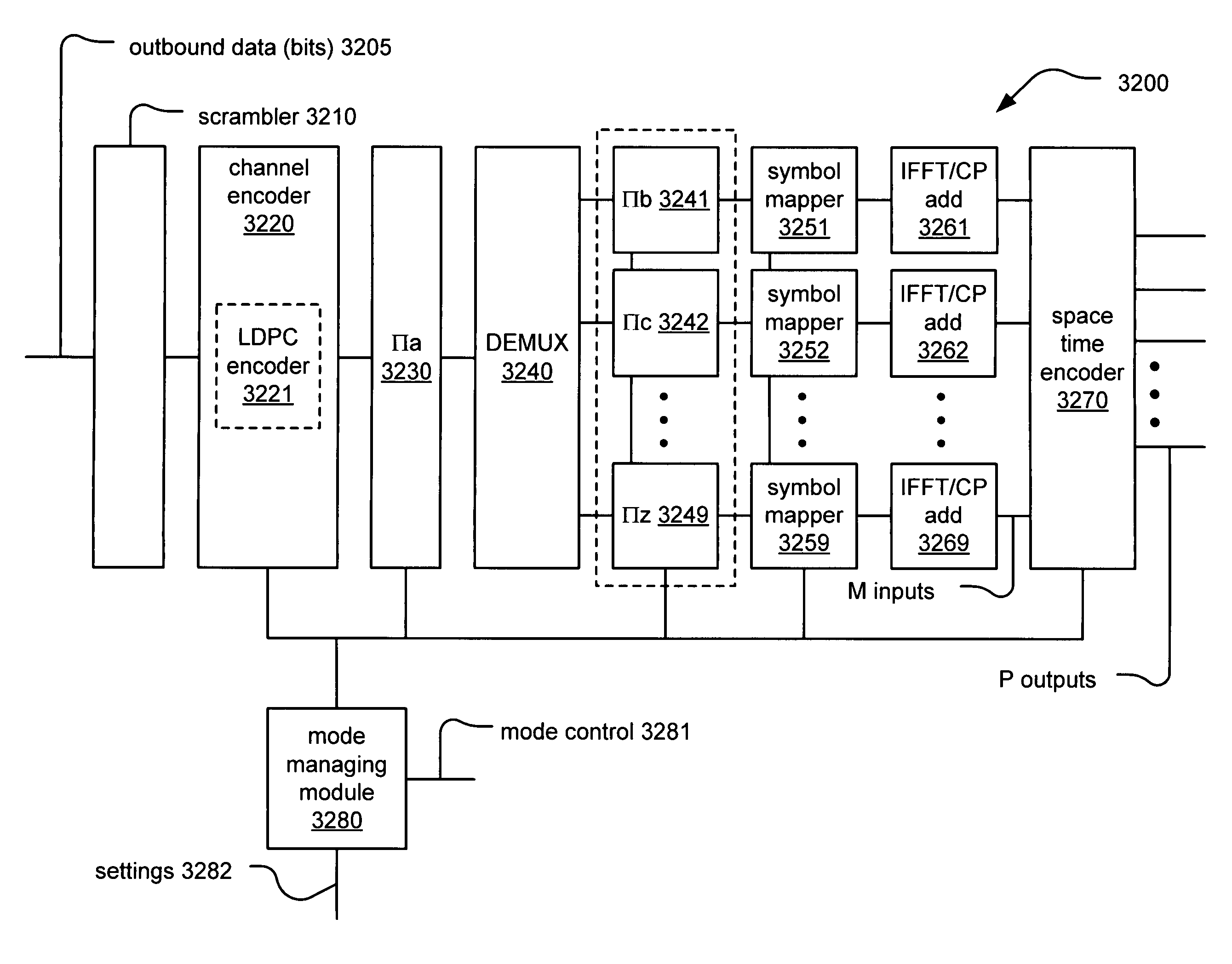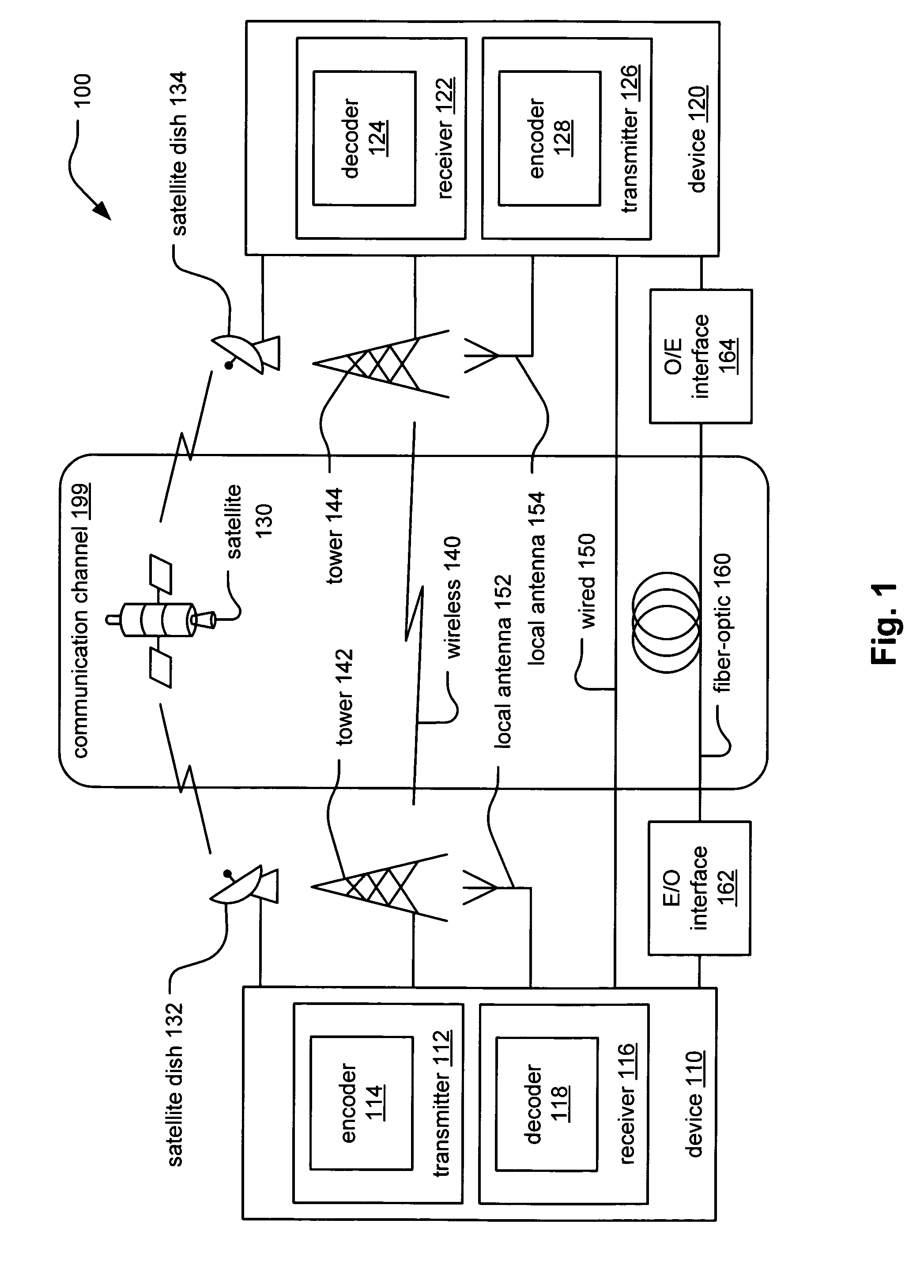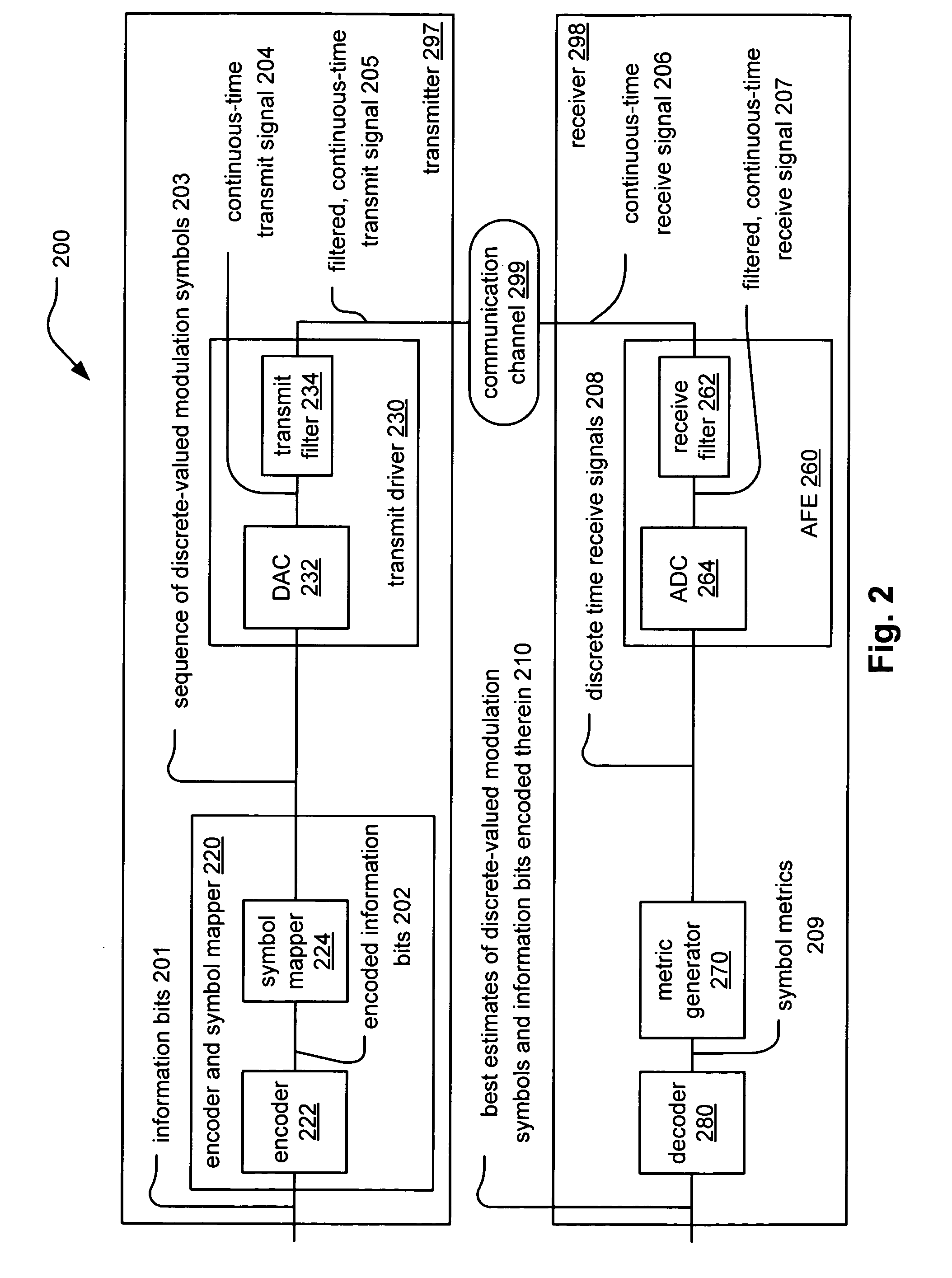LDPC (Low Density Parity Check) coding and interleaving implemented in MIMO communication systems
a communication system and low density parity technology, applied in the field of communication systems, can solve the problems of lack of flexibility, little, if any, presented by this approach to design other types of ldpc codes, and the significant challenge for communication devices to implement such ldpc codes, and/or the design of such ldpc codes
- Summary
- Abstract
- Description
- Claims
- Application Information
AI Technical Summary
Benefits of technology
Problems solved by technology
Method used
Image
Examples
example 1
[0125]Let p=3, m=4, ρ=24 and γ=8. Then a GRS-based regular LDPC code can be constructed by a 648×1944 H matrix containing 192 distinct 81×81 permutation matrices. It has bit degree 8 and check degree 24. As mentioned above, it is generally understood in the art that usually 3 different bit degrees provide for the best irregular LDPC codes. In this following example, the lowest degree is chosen as being a bit degree of 2. In general, the lowest bit degree within the bit degree distribution can be any number less than 8. Among all of the possible bit degree distributions for the LDPC code block, bit degree distributions including 3 distinct bit degree distributions are consider in this particular example. Specifically, 11 possible bit degree distributions are considered for the LDPC code block. The following table shows these 11 possible bit degree distributions:
[0126]
TABLE 1deg = 8deg = 7deg = 6deg = 5deg = 4deg = 3deg = 2D1648648648D2648648648D3324972648D41621134648D5486810648D66486...
example 1 (
continued)
[0130]The example provided above is continued here to show several possible selections of parity check matrices that correspond to a GRS-based irregular LDPC code. Subsequently and later in this disclosure, several performance comparisons are provides showing the improvement in performance provided by employing GRS-based irregular LDPC codes.
[0131]The method then continues by partitioning a parity check matrix that corresponds to a GRS-based regular LDPC code into a plurality of partial-matrices (each having a corresponding bit degree) based on the selected bit degree distribution, as shown in a block 430. The number of partial-matrices corresponds to the number of bit degrees within the selected bit degree distribution.
[0132]As an example of one possible embodiment, when the selected bit degree distribution includes 3 separate bit degrees, then the parity check matrix, H, may be decomposed into 3 separate partial-matrices. Continuing on with this example, this decomposed ...
PUM
 Login to View More
Login to View More Abstract
Description
Claims
Application Information
 Login to View More
Login to View More - R&D
- Intellectual Property
- Life Sciences
- Materials
- Tech Scout
- Unparalleled Data Quality
- Higher Quality Content
- 60% Fewer Hallucinations
Browse by: Latest US Patents, China's latest patents, Technical Efficacy Thesaurus, Application Domain, Technology Topic, Popular Technical Reports.
© 2025 PatSnap. All rights reserved.Legal|Privacy policy|Modern Slavery Act Transparency Statement|Sitemap|About US| Contact US: help@patsnap.com



